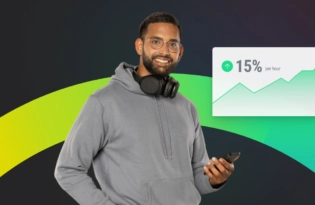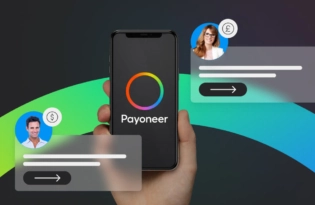What does it mean to have money transmitter licenses?
State money transmitter licensing laws are a big deal in the US. They govern the safety and integrity of the payments system. In 48 states, payment companies need money transmitter licenses. However, it takes a lot to get approved for one. Find out more about the application process here.

State money transmitter licensing laws are among the most important statutes in the US that address the safety and integrity of the payments system and provide critical protections to consumers and companies that send or receive payments. Payment companies are required to obtain them by 48 US states to hold or move money on behalf of residents (consumers and businesses) of those states.
Obtaining these licenses requires significant investment and commitment of time, resources and expense. States will not approve all applications for licensure and licenses will be granted only to those companies that can prove they have the management, oversight and controls to carry out money transmitter obligations.
The application process
The process is rigorous and some applications will be rejected. The goal of it is to ensure safety, soundness and solvency of the applicant. Information required to be submitted with the application, includes:
- Detailed multi-year business plan
- Audited Financial Statements of the applicant
- Personal financial records of all directors, principal officer, owner or 10% shareholders
- Third party criminal and civil background checks
- Fingerprints of Control Persons
- A robust anti-money laundering (AML) Program and other compliance policies
- List of all lawsuits or criminal complaints against any Control Person in the last fifteen years
In addition to the disclosure requirements, the financial obligations are substantial. Licensed Money Transmitters must carry surety bonds of at least $500,000 in each state and the applicant must also satisfy the states’ minimum capitalization requirements.
Regular audits, reporting, and examinations
Once approved, the licensee is required by state regulators to submit a monthly, quarterly and/or annual reports to determine its transaction volume and financial condition. Furthermore, the licensee undergoes rigorous state audits and examinations and yearly license renewals.
It is important to note that while some companies are registered as a Money Services Business (MSB) with the Financial Crimes Enforcement Network (FinCEN) of the U.S. Treasury Department (which only requires an easy online registration), not all MSBs have the required state money transmission licenses described above. It is a federal crime for an MSB to engage in money transmission without first obtaining the state money transmission licenses.
By being heavily regulated and licensed in 48 states (especially in NY and CA) – Payoneer provides its clients with confidence that their funds are fully protected, and guarantees that all payments are made through a fully compliant and safe payment platform that is recognized by financial regulators all around the world.
Related resources
Latest articles
-
Made in India for the World: The State of Indian Cross-Border eCommerce
The Indian eCommerce market has grown significantly in the last few years. As a result, many cross-border businesses have undergone a fast-paced digital transformation and contributed to surpassing the government-set $400 billion target of trade within a single year.
-
Defying the odds: How Ukrainian businesses thrive during war
One year post-war, Ukraine’s businesses adapt and thrive amidst adversity. Entrepreneurs showcase resilience, reflecting national tenacity. Many diversify, venturing into e-commerce and digital realms. Despite hurdles, 44% of SMBs aim for growth, with 36% hiring. Their grit underscores Ukraine’s enduring spirit amid challenges.
-
What Are The Best Payment Options For Freelancers?
Freelancers offer flexibility and expertise without the overhead of traditional employees. However, processing invoices and payments for international freelancers can be a complex and time-consuming process. To work with freelancers effectively, it’s crucial to understand the available payment options for freelancers and how to best keep on top of accounting and invoicing.
-
An 8-point Checklist for Finding the Best Payment Provider
There’s huge potential to expand into ASEAN markets. But only for online sellers that accept local payment methods. Finding a trusted payment solution can be a worry and a challenge. Use this checklist to vet potential payment partners. With the right payment support, the sky’s the limit!
-
How to bill your international clients
Want to learn how to bill international clients when you’re based in the Philippines? In this article we spoke to three leading business owners who shared their tips to working successful international work. Learn how they collect payments and more below.
-
How to nail your direct-to-consumer payment strategy
Asia-Pacific offers massive potential for DTC ecommerce. But cross-border payments can be a headache. We share an actionable strategy for DTC payments that’ll remove DTC payment hazards and expand your business with ease. What are you waiting for?












